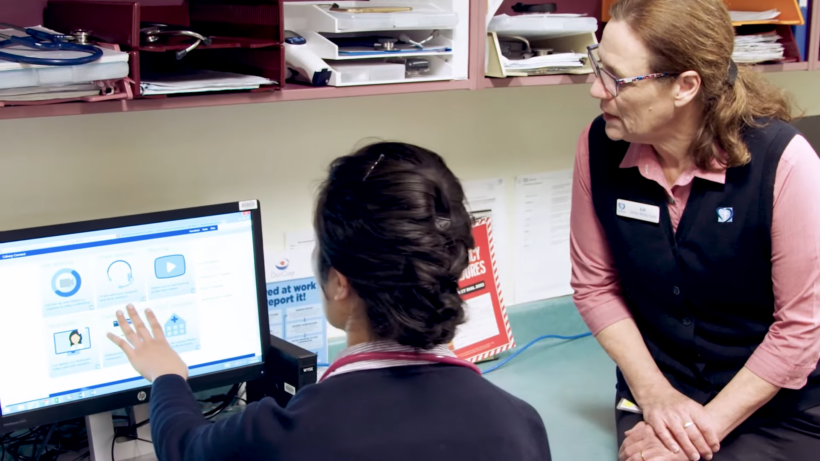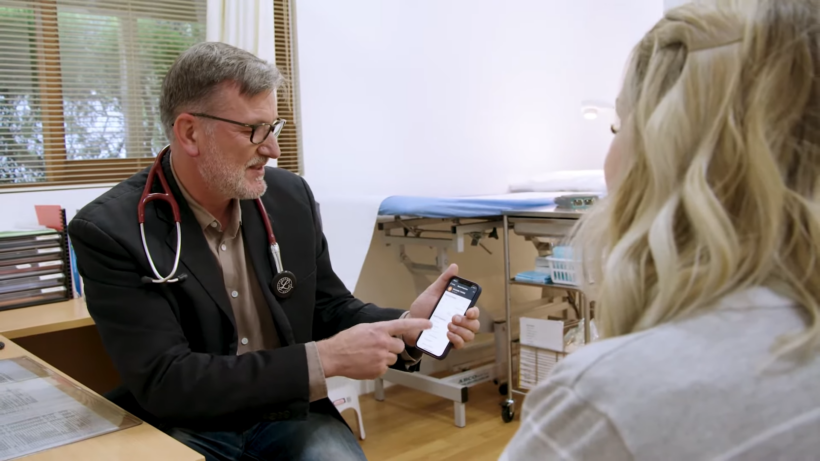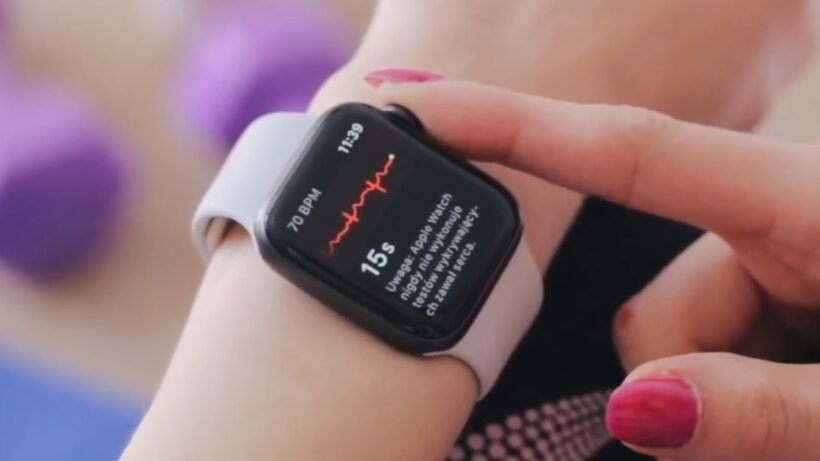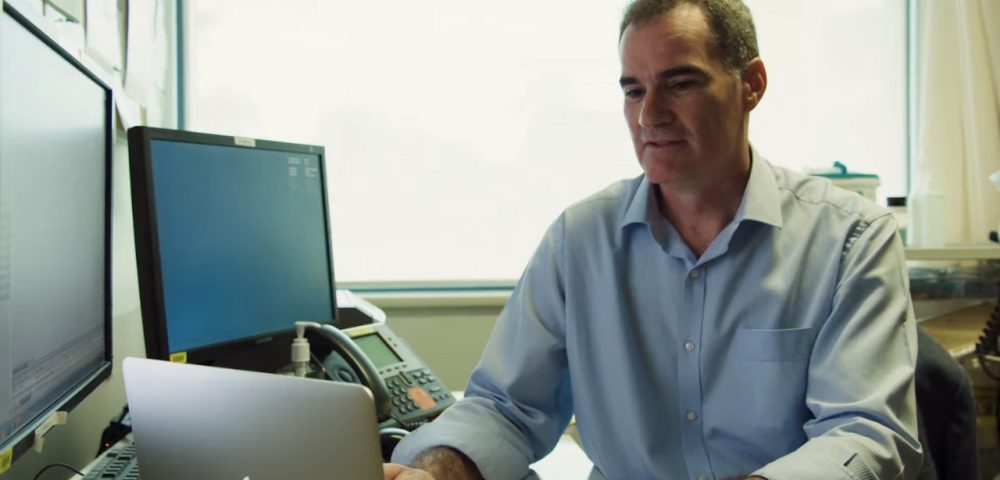Advanced technologies are reshaping medical practices across the globe. Now, healthcare is more efficient and accurate, benefiting from innovations like remote consultations and AI-driven diagnostics.
These developments are making personalized medicine a reality, enhancing patient care. It’s a significant shift, redefining the healthcare landscape. We’re witnessing a new era where technology and medicine merge to improve lives. Let’s explore these exciting changes further.
Page Contents
- 1 Enhanced Diagnostics and Treatment
- 2 Improved Interoperability
- 3 Predictive Analytics
- 4 Addressing Health Disparities
- 5 Smart Technology for Health Routines
- 6 Growth of Wearable Medical Devices
- 7 Predictive Healthcare
- 8 Artificial Intelligence (AI) in Medicine
- 9 Blockchain for Electronic Health Records
- 10 Telemedicine and Remote Consultations
- 11 Last Words
Enhanced Diagnostics and Treatment

Digitalization has significantly elevated the precision in diagnosing and treating diseases like cancer. For instance, advanced imaging technologies and AI algorithms work together to detect cancerous cells at an early stage, vastly improving treatment outcomes.
The precision not only aids in early intervention but also in tailoring treatment plans specific to each patient’s condition. Specialists benefit from enhanced consistency in their findings, creating a feedback loop that continuously refines diagnostic processes.
Also, they work with developers to provide more advanced tools for diagnostics and treatments. If you want to learn more about Custom Healthcare Software, check out Empeek.
Improved Interoperability
The concept of interoperability has transformed from a perennial challenge to a dynamic solution in healthcare. Medical data no longer exists in isolated silos. Instead, diverse medical systems and devices communicate seamlessly, providing a holistic view of a patient’s health.
The integration facilitates better monitoring and care coordination, allowing healthcare providers to make informed decisions from anywhere. By leveraging open ecosystem approaches, healthcare technology providers have broken down the barriers that once caused inefficiencies.
Now, clinicians have a comprehensive overview of patients’ conditions at their fingertips, greatly improving the quality of care and streamlining the healthcare delivery process.
Predictive Analytics

By analyzing vast amounts of real-time and historical data, this technology helps healthcare providers act preemptively, improving efficiencies and patient outcomes. In acute care, for example, predictive analytics can be life-saving, enabling early detection of health risks based on vital signs and other data.
This extends beyond hospital walls to remote monitoring, keeping a caring eye on patients at home. Innovations like these enable a shift from reactive to preventative care, significantly enhancing patient safety and healthcare service quality.
Addressing Health Disparities
Digitalization is playing a key role in bridging health service gaps, especially for marginalized and underserved communities. Innovative partnerships and technology deployments are extending healthcare access to remote and vulnerable populations.
For instance, mobile healthcare units equipped with advanced diagnostic tools bring essential medical services to hard-to-reach areas. Collaborations like these not only improve healthcare accessibility but also work towards a more sustainable and equitable healthcare system.
Such initiatives reflect a growing commitment in the healthcare sector to ensure everyone, regardless of their location or socioeconomic status, has access to quality healthcare.
Smart Technology for Health Routines

The proliferation of smart health devices has revolutionized daily health routines. Wearables and AI-integrated devices now play a very important role in monitoring and encouraging healthier lifestyles.
For instance, advanced electric toothbrushes with AI applications provide personalized dental care tips based on user data. Similarly, smartwatches monitor vitals like heart rate, enabling users to stay informed about their health status in real-time.
These devices not only track health metrics but also motivate users to maintain or improve their health, making personal well-being a more integrated part of everyday life.
Growth of Wearable Medical Devices
Wearable medical devices have seen extraordinary growth. Devices like heart rate sensors, exercise trackers, and oximeters provide continuous monitoring of patients, especially those at high risk.
The constant monitoring empowers patients to take control of their health, leading to preventative care and potentially lower insurance premiums. Furthermore, data collected from these devices offer invaluable insights for personalized healthcare experiences.
Predictive Healthcare

Predictive healthcare leverages big data to forecast future health trends and develop personalized health recommendations. This approach enables healthcare providers to anticipate and prepare for potential health scares, optimizing resource allocation and patient care.
Predictive analytics also aids businesses in planning for seasonal staff adjustments in response to predicted outbreaks. This data-driven strategy extends beyond crisis management to everyday healthcare, promoting a proactive stance on patient health and wellness.
Artificial Intelligence (AI) in Medicine
AI’s role in medicine has expanded significantly, influencing everything from patient care to research and drug development. AI algorithms assist in delivering personalized treatments, especially in fields like oncology, where they analyze pathology images to recommend effective drug combinations.
In medical imaging, AI helps in identifying details that might be missed by the human eye. Additionally, AI accelerates the drug development process, reducing time and costs significantly.
Blockchain for Electronic Health Records
Blockchain technology is revolutionizing how electronic health records are managed. This digital ledger system ensures that health records are accurate, secure, and easily accessible to authorized personnel.
By providing a tamper-proof, decentralized record-keeping system, blockchain enhances the integrity of patient data. This technology addresses major concerns like data breaches and privacy issues, bringing a new level of trust and efficiency to electronic health record management.
The implementation of blockchain signifies a major step forward in protecting patient information and streamlining healthcare administration.
Telemedicine and Remote Consultations
Telemedicine has revolutionized patient-doctor interactions, making healthcare accessible from the comfort of home. This digital approach enables remote consultations, where patients connect with medical professionals via video calls, chat platforms, or specialized telehealth applications.
Particularly beneficial for those in remote areas or with mobility challenges, telemedicine offers a convenient alternative to traditional in-person visits.
Moreover, it’s a boon during health crises when limiting physical contact is crucial. The technology includes not just consultations, but also remote monitoring and digital transmission of medical records, ensuring continuous, comprehensive care.
This advancement has significantly reduced waiting times and travel expenses, making healthcare more immediate and cost-effective.
Last Words
The advancements in healthcare digitization are reshaping the landscape of medical care, making it more efficient, personalized, and accessible. Each stride, from predictive analytics to smart health routines, not only represents a leap in medical science but also echoes a commitment to better, more empathetic patient care.
These innovations are breaking down barriers, bringing us closer to a world where good health is not just a privilege but a reachable goal for all.
Also Read:
- The Best Way to Store Popcorn - Ultimate Guide 2024
- Technology in Healthcare Industry: From Telemedicine to AI
- How Long Do Mashed Potatoes Last In The Fridge 2024…
- 8 Best Weight Gain Supplements for Skinny Guys 2024…
- 10 Ways to Change Your Mindset and Attitude 2024:…
- Medicare and Dental Coverage: What You Should Know in 2024















